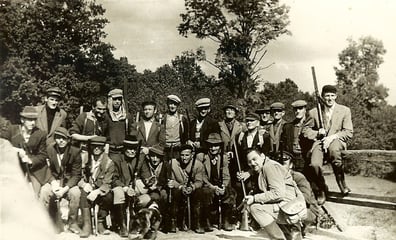When evaluating sales performance - past, present and future - it’s difficult to figure out what information or data to trust when making decisions. Just like investments where past performance is not a guarantee of future results, past sales performance does not guarantee anything for the future. It gives you some, not all, insight into sales results, but it doesn’t tell you how the result was created.
Pipeline analysis (a great performance management tool) is a lagging indicator that can be used to uncover previous sales activity and give you some indication of future sales, but there are problems with that data point:
- The sales person might be putting in data just to keep you off their back
- Unless your pipeline is mapped properly with check points,
then the probability of opportunities is subjective, not certain. - If the CRM being used does not provide reporting on conversion ratios from one sales step to the next, you certainly don’t have information needed for intentional coaching.

Linda and I went to a “box store” to find appliances for a townhouse we had purchased. We needed to replace all four major kitchen pieces: dishwasher, refrigerator, range/oven and microwave. We were working with a salesman and we were getting close to making a selection between models. As Linda and the salesman were talking, Linda asked me to search for the ratings on the appliances. This is what I found:
- Refrigerator/freezer – 4.3 – 1,200 ratings
- Range/oven – 4.2 – 2,000 ratings
- Dishwasher – 3.2 – 1,600 ratings
I hadn’t looked up the rating yet when Linda asked me what I found out. I reported the 4.3 and the 4.2; however, as I reported the 3.2 on the dishwasher, the salesman stepped back into the conversation and asked what the 3.2 was. I told him it was the rating on the dishwasher based on 1,600 customer ratings. His response was “You cannot rely on those ratings. Those ratings are based on this model two years ago when it first came out – this is a newer version of the model.”
It was so hard for me to not reply with, “So I should trust the 4.3 and the 4.2, but not the 3.2?” I didn’t want to go there because I know how I get when I challenge someone trying to sell me something. I'm a pain in the *ss. I cannot help it when a salesman screws up the opportunity to handle something the right way and fails. But, that’s not my point here. My point here in this story for this article is this:
Your salesperson, and any sales candidate you are interviewing, will also refute anything negative you ask about, but will never debate the positives.
And that is a problem if you are not aware of that and deal with it when it happens. Case in point. We use Objective Management Group for evaluating both sales teams that exists today and future talent to hire. The tool has been “tested” hundreds of thousands of times and is the most consistent and reliable sales talent evaluation on the planet. (check it out)
With this business tool, we find a mix of things that are supportive of successful selling: Strong desire, commitment, responsibility, and sales DNA. And there are findings that indicate hindrances to successful selling: lack of skills in consultative selling, asking questions, hunting, closing, and qualifying skills.
Time and time again, when we review the results with the sales manager or the sales person and we ask, “What did you think?”, most of the time we can count on the following:
- I thought it was interesting.
- I’ve taken lots of these in the past and you just have to take the results with a grain of salt.
- I thought it was dead on.
- I thought the findings really depend on different situations; some of the questions didn’t fit the way I sell.
- There were a lot of things I agree with and a couple of things I didn’t understand or agree with.
We ask the sales person to then discuss the finding they want to talk about first. Almost 100% of the time, they will want to talk about the things they disagree with. Obviously, those are the things that are viewed as “negative”. Never, not once ever in over 20 years, has someone gone to desire, commitment, responsibility, hunting or closing findings that are positive and said, “I don’t agree with this. I’m really not committed, I don't have desire for success in sales, I make excuses when I fail, I suck at prospecting and I can’t even close a door.”
NOT EVER!
What they all want to focus on is the 3.2 rating to try and convince me that the negative findings cannot be true, BUT all those positive things, “Yep, that’s me.”
So, there you go. Your salespeople, as well as the candidates, will do their best to convince you that all the positive data and outputs are accurate and true, but anything negative can be explained away.
Buyer beware!
Additional Resources:
- Sample evaluation results of recommended for hire
- Sample evaluation results of not recommended for hire
- One time use of pre-hire assessment for current sales candidate
- Lesson on how to use a success formula to evaluate sales performance
- FREE WEBINAR - Do you need stronger salespeople to meet current selling challenges? If you answered yes, then this webinar is for you. Register NOW for our September 28, 2016 webinar, "The Magic of the OMG Sales Candidate Assessment."

